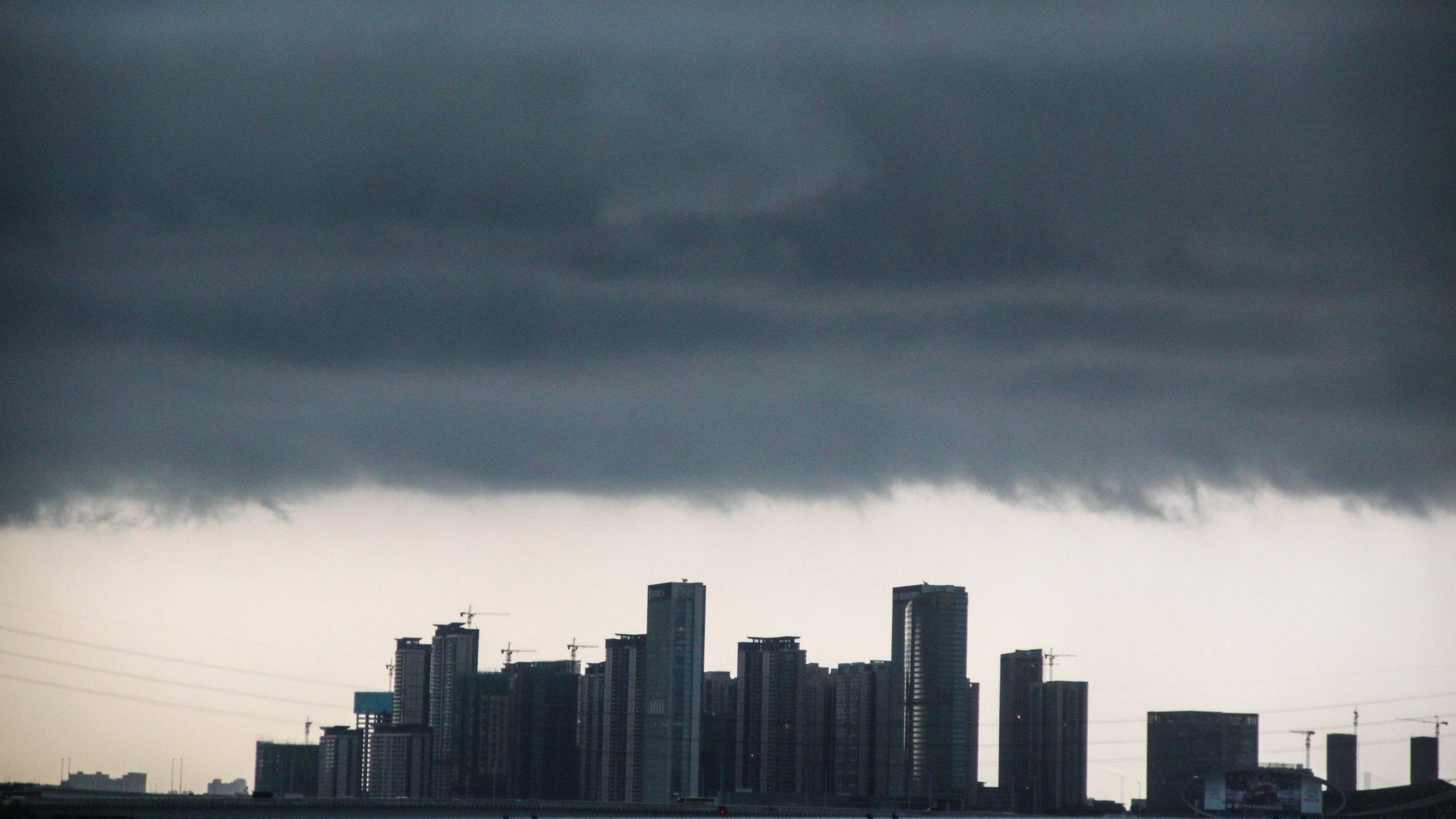China's growth slows to weakest in 24 years
- Published
China's economy - slowing but still out in front
China's economic growth slowed to its weakest in 24 years, expanding 7.4% last year from 7.7% in 2013.
Growth in the world's second largest economy missed its official annual growth target of 7.5% for the first time in 15 years.
But, the annual growth figures still came in higher than market expectations of about 7.2%.
China's economy expanded by 7.3% in the October-to-December period from a year earlier.
That fourth quarter growth was unchanged from the previous three months, but also slightly above economists' expectations.
'Resilient' economy
Frederic Neumann, co-head of Asian economic research at HSBC said the Chinese economy is proving to be more resilient than expected.
There are questions about how China will adjust to a more moderate level of growth, as John Sudworth reports
"Although, at 7.3% last quarter, growth isn't as spectacular as over the past decade, it is still among the world's fastest," he told the BBC.
"Especially reassuring is that retail sales and industrial production accelerated in December from the prior year, giving China a bit more momentum heading into the year of the goat."
China's retail sales rose 11.9% last month from a year earlier, while factory output rose 7.9% in the same period. Both economic measures beat forecasts.
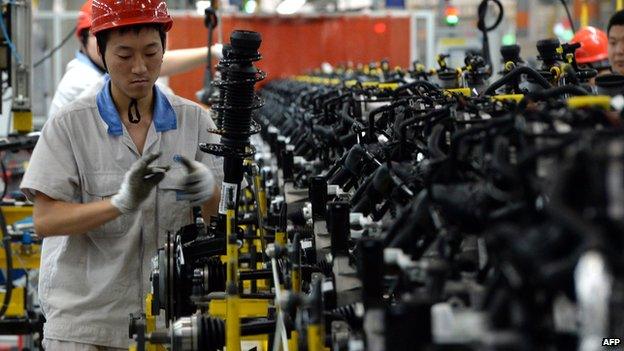
China's economy expanded at the slowest pace since 1990 in 2014
Alaistair Chan, economist at Moody's Analytics said the growth figures were helped by the acceleration in factory production, showing that the economy has been able to manage the transition away from its cooling housing market.
Property investment low
Investment in China's once red hot property market slowed to a five-year low of 10.5% in 2014 from a year earlier - the slowest pace since the first half of 2009.
That was almost half the growth of 19.8% in 2013 and also down from an annual rise of 11.9% in the first 11 months of last year.
Mr Neumann of HSBC said more easing by the central bank will likely be needed to guard against the downside risks stemming from a "wobbly real estate market" in 2015.
"More easing will likely be needed in the form of rate cuts and injection of liquidity," he said. "Fortunately, China has the tools to fine-tune growth and I expect officials to make full use of these to make sure that growth doesn't dip below 7% over the course of this year."
Easing ahead?
In November, the country's central bank did unexpectedly cut interest rates to 2.75% for first time since 2012 in an attempt to revive the economy.
While there is still reason for the government to maintain an easing basis, economists said that policymakers will likely take the growth data as a positive and not change stimulus plans straight away.
"More stimulus measures may be coming up, but it's unlikely that the continuous fiscal and investment plans of the previous administration are in the works," said Tony Nash, global vice president of Delta Economics.
Meanwhile, Asian markets reacted positively to the Chinese economic data with both the Shanghai Composite and Hang Seng index closing higher by 1.8% and 0.9%, respectively.
The International Monetary Fund (IMF) also welcomed slowing growth in China with its chief economist Olivier Blanchard saying that it showed that the country's government was trying to rebalance the economy.
The comments were made after the IMF lowered its forecast for global economic growth for this year and 2016.
- Published20 January 2015
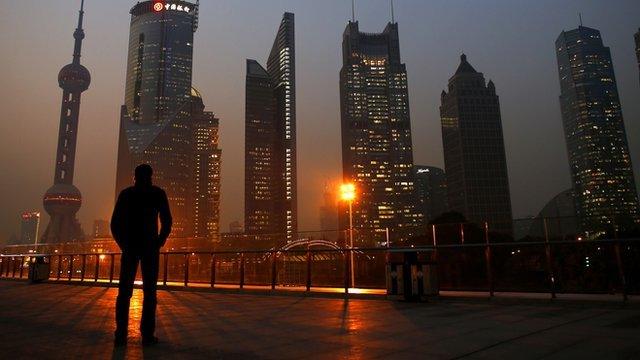
- Published20 January 2015
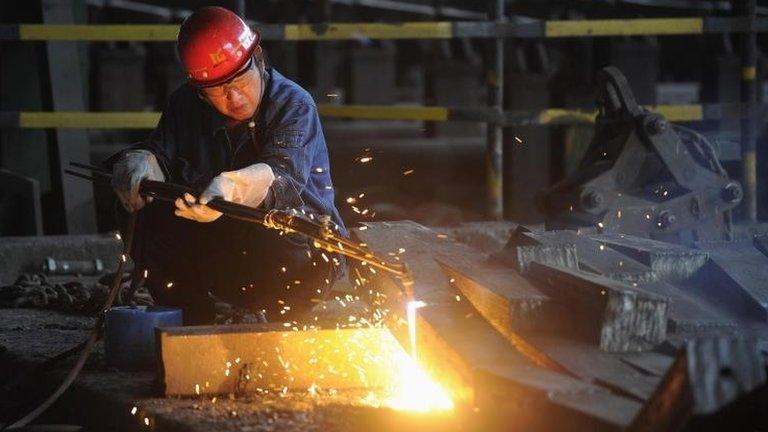
- Published19 January 2015
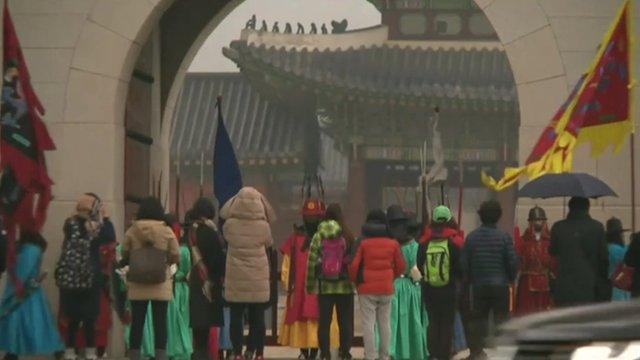
- Published20 January 2015
